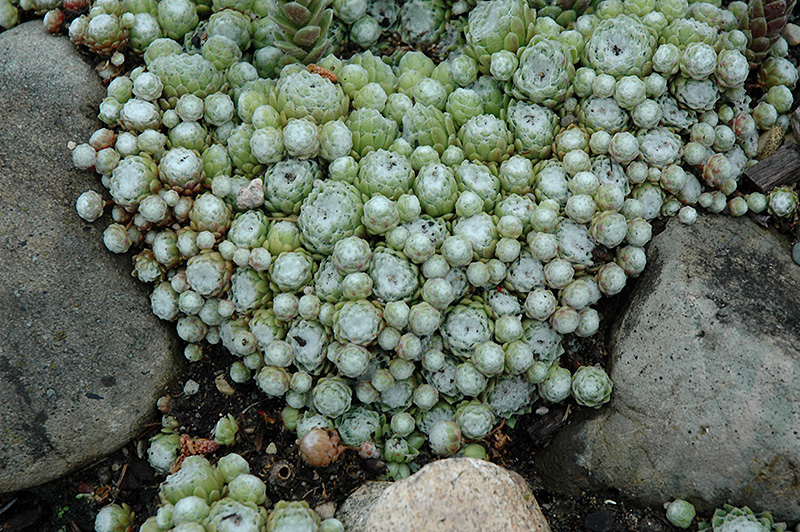3 inches
8 inches
10 inches

House Leek
Cobweb Hens And Chicks is primarily valued in the home for its distinctive form, with the flower stalks towering over the foliage. It features unusual clusters of pink star-shaped flowers with dark red bracts rising above the foliage in mid summer. Its attractive tomentose pointy leaves emerge silver, turning bluish-green in color with hints of silver throughout the year.
This is a dense herbaceous houseplant with tall flower stalks held atop a low mound of foliage. Its extremely fine and delicate texture is quite ornamental and should be used to full effect. This plant should not require much pruning, except when necessary to keep it looking its best.
When grown indoors, Cobweb Hens And Chicks can be expected to grow to be only 3 inches tall at maturity extending to 8 inches tall with the flowers, with a spread of 12 inches. It grows at a medium rate, and under ideal conditions can be expected to live for approximately 20 years. This houseplant requires direct sun for optimal performance, and should therefore be situated in a room that gets bright sunlight for a good part of the day; it is not a good choice for rooms lit only by artificial light. It prefers dry to average moisture levels with very well-drained soil, and may die if left in standing water for any length of time. This plant should be watered when the surface of the soil gets dry, and will need watering approximately once each week. Be aware that your particular watering schedule may vary depending on its location in the room, the pot size, plant size and other conditions; if in doubt, ask one of our experts in the store for advice. It is not particular as to soil pH, but grows best in sandy soil. Contact the store for specific recommendations on pre-mixed potting soil for this plant.
There are many factors that will affect the ultimate height, spread and overall performance of a plant when grown indoors; among them, the size of the pot it's growing in, the amount of light it receives, watering frequency, the pruning regimen and repotting schedule. Use the information described here as a guideline only; individual performance can and will vary. Please contact the store to speak with one of our experts if you are interested in further details concerning recommendations on pot size, watering, pruning, repotting, etc.
-- THIS IS A HOUSEPLANT AND IS NOT MEANT TO SURVIVE THE WINTER OUTDOORS IN OUR CLIMATE --
